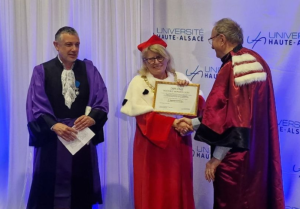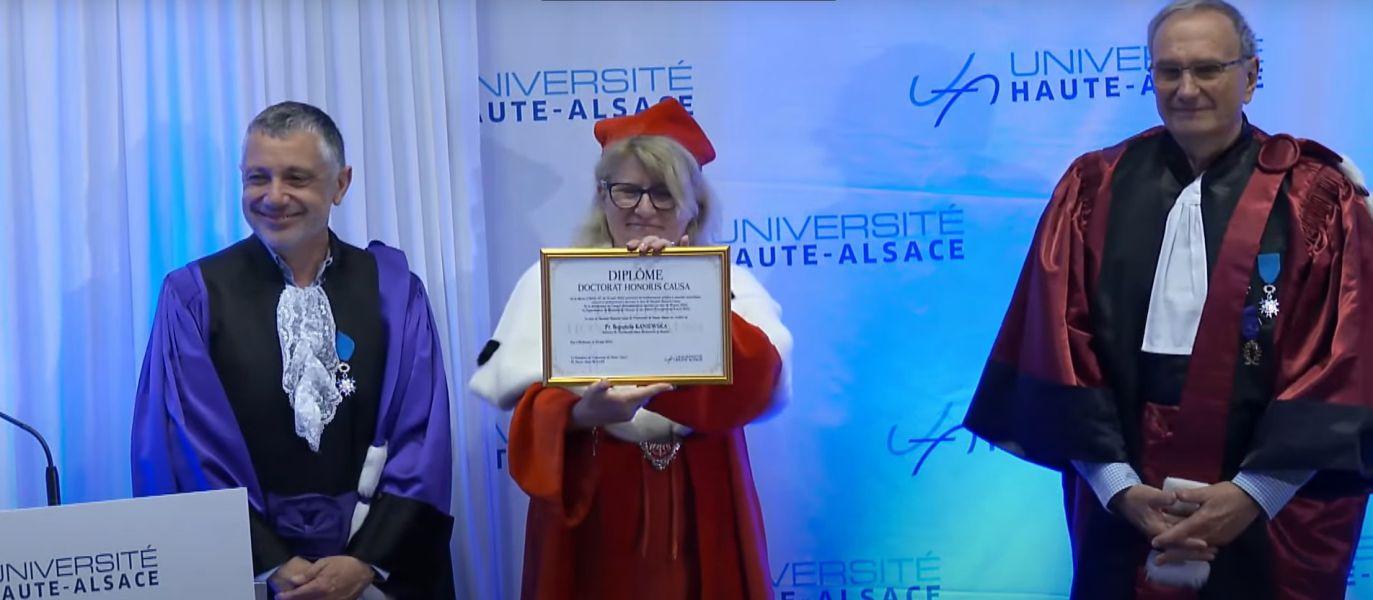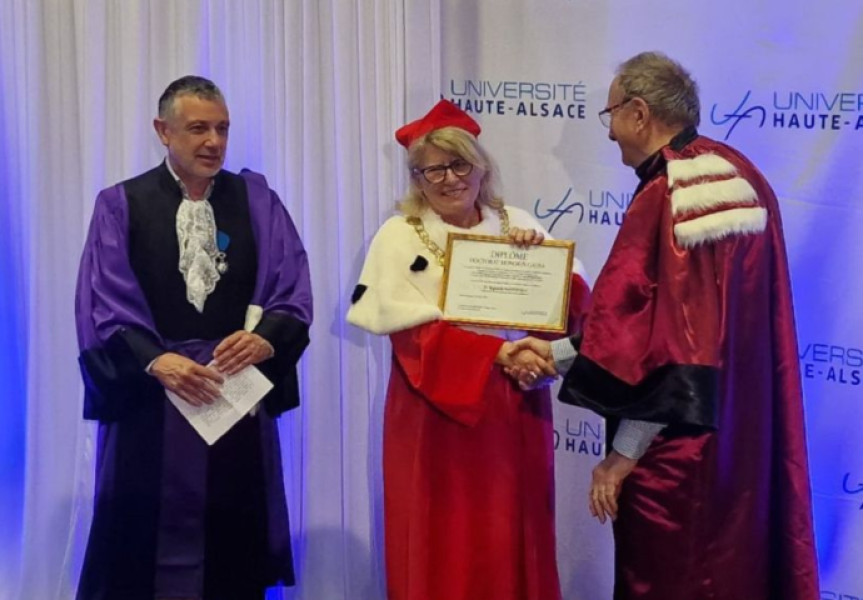On Monday, 24 June, Professor Bogumiła Kaniewska was awarded an Honorary Doctorate by the University of Haute-Alsace in Mulhouse, France.
The Rector of AMU has received this distinction for her commitment to promoting the idea of a European university and European values. During the ceremony, UHA Rector Pierre-Alain Muller said that the foundation for the development of any university is freedom of thought, freedom of speech and freedom of teaching, which must always be defended. Only by preserving these freedoms is it possible for a university to thrive, especially in today's world. Only universities preserving academic freedoms can collaborate freely with each other and develop research.
- The University, under the leadership of Prof. Bogumiła Kaniewska, is one of the most prominent universities in Poland. Cooperation between Adam Mickiewicz University, Poznań and Mulhouse is progressing outstandingly. The EPICUR consortium, of which the two universities are members, has brought us together and opened us up to cooperation because we are willing to face challenges, and the honorary doctorate awarded today is a symbol of this,' said Prof. Guy Schultz, former Rector of the University of Mulhouse, in his laudation.
- 'I am deeply grateful to the entire University community, the Rector, Prof. Pierre-Alain Muller, and the Vice-Rector, Prof. Alain Dieterlen, for deeming me worthy of this highest university dignity. It is even more valuable that I am receiving it for the first time...' - thanked Prof. Bogumiła Kaniewska after presenting the diploma.
In her speech, the Rector also recalled the President of the French Republic, Emmanuel Macron - the founder of the concept of European universities. - "An idea which has changed and is changing the face of universities in Poland and Europe, returning universitas to its original, communal shape, and at the same time, marking the way to the future," added Prof. Kaniewska. She emphasised, referring to Emmanuel Macron's speech, that the university is the most enduring achievement of European culture, its guardian and the architect of its future. And its role is even more crucial the more complicated, confused and helpless reality becomes.
The Rector mentioned that in recent years, Poland has become a second home for many refugees from Ukraine and that the migration crisis is ongoing. The war in Gaza is ongoing - and in Poland and France, it translates into student protests in defence of Palestine but also into increasing concerns about the growth of anti-Semitic sentiment in Europe. In her view, internationalisation in these circumstances ceases to just cooperation with leading foreign centres and academic exchange. It becomes a debate about the shape of the university in general, regarding its role and tasks. - "I believe that if we wish - and I believe we do - to build a European university of worldwide significance and influence its future, we must ask ourselves how to educate multicultural groups of students, how to build mechanisms to integrate our employees and students originating from distant parts of the world, speaking different languages and practising different religions. What institutional solutions should be adopted to make the university a place friendly to all, not just by name? We must seek an answer to the quite sensitive question regarding our - individual and collective - approach to all exclusions, all minorities. I think it is one of the most essential functions of European universities, including the EPICUR consortium," emphasised the AMU Rector.
She expressed her conviction that a European university cannot be an indifferent institution. The pursuit of science and education requires not only adequate material conditions but also liberty combined with responsibility. - This is a responsibility that we have towards society, towards tradition and the past, but above all towards those who will come after us,' said Prof. Bogumiła Kaniewska.










